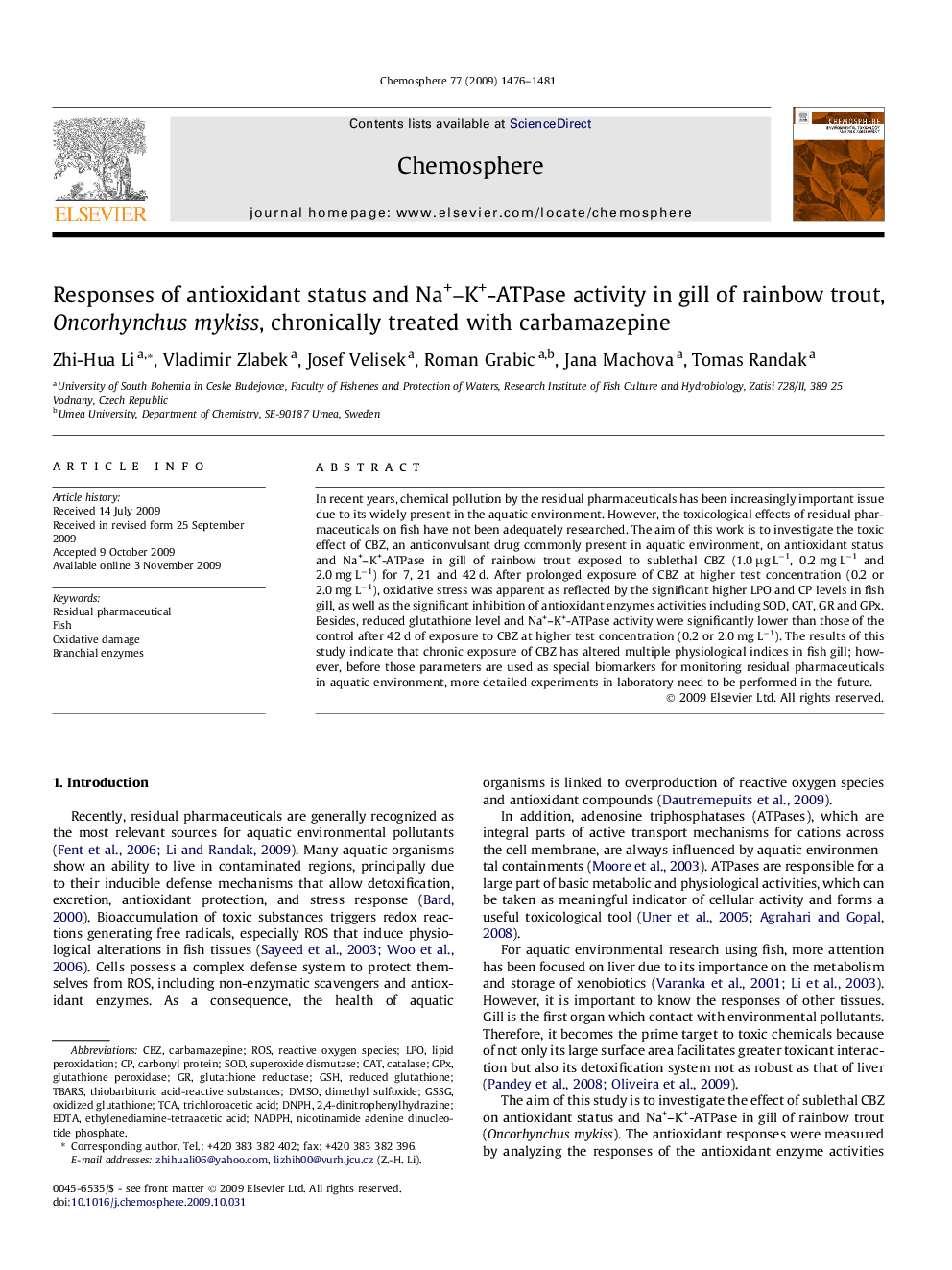| Article ID | Journal | Published Year | Pages | File Type |
|---|---|---|---|---|
| 4412600 | Chemosphere | 2009 | 6 Pages |
In recent years, chemical pollution by the residual pharmaceuticals has been increasingly important issue due to its widely present in the aquatic environment. However, the toxicological effects of residual pharmaceuticals on fish have not been adequately researched. The aim of this work is to investigate the toxic effect of CBZ, an anticonvulsant drug commonly present in aquatic environment, on antioxidant status and Na+–K+-ATPase in gill of rainbow trout exposed to sublethal CBZ (1.0 μg L−1, 0.2 mg L−1 and 2.0 mg L−1) for 7, 21 and 42 d. After prolonged exposure of CBZ at higher test concentration (0.2 or 2.0 mg L−1), oxidative stress was apparent as reflected by the significant higher LPO and CP levels in fish gill, as well as the significant inhibition of antioxidant enzymes activities including SOD, CAT, GR and GPx. Besides, reduced glutathione level and Na+–K+-ATPase activity were significantly lower than those of the control after 42 d of exposure to CBZ at higher test concentration (0.2 or 2.0 mg L−1). The results of this study indicate that chronic exposure of CBZ has altered multiple physiological indices in fish gill; however, before those parameters are used as special biomarkers for monitoring residual pharmaceuticals in aquatic environment, more detailed experiments in laboratory need to be performed in the future.
